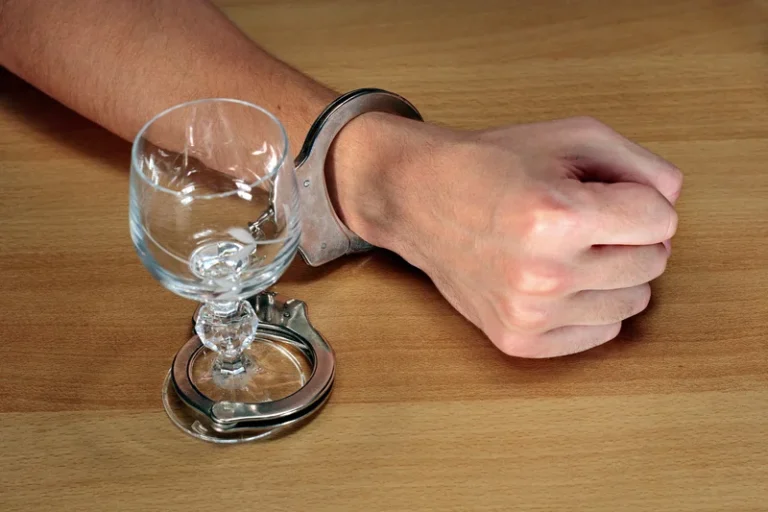
Your doctor may then recommend allergy tests to further pinpoint the cause of the symptoms. Individuals with allergic rhinitis or susceptibility to other outdoor allergies may experience these symptoms more intensely. A wine allergy can exacerbate existing allergy symptoms, making it essential to recognize and manage the condition properly. If someone is allergic to red wine, seek a doctor’s help immediately.
How can you differentiate between wine allergy and intolerance?
Track details like how much you consumed, if you had it with food, and when symptoms appeared (immediately, hours later, etc). Also note other foods or drinks consumed around the same time period. This is usually a delayed reaction (hours or days) that may or may not involve the immune system. Sometimes red wine sneezing intolerances occur when the body lacks sufficient enzymes or chemicals to properly digest or metabolise certain substances in wine. For example, a lack of the enzyme alcohol dehydrogenase can mean that you can’t breakdown alcohol properly which can lead to severe systemic intolerance symptoms.
- As we already mentioned, get medical help immediately if you experience any symptoms of anaphylaxis after drinking wine.
- What’s more concerning, however, is that some medications can lead to uncomfortable (even dangerous) side effects when combined with alcohol.
- If you experience anaphylaxis, a severe and potentially life-threatening allergic reaction, immediately seek emergency medical attention.
- In fact, 46% of Japanese and 56% of Chinese individuals are deficit of this enzyme and is commonly called “Asian Flush”.
- For individuals who have a low level of the enzyme called Alcohol Dehydrogenase (ADH), they more slowly eliminate the metabolite of ethanol -acetaldehyde.
Diagnostic Tests
If you experience allergic symptoms such as rashes, headaches, or stomach upset shortly after drinking red wine, you may have a red wine allergy. However, to get an accurate diagnosis, it’s recommended that you see a healthcare professional who can conduct appropriate tests and appointments to confirm your allergy. Tannins are polyphenolic compounds responsible for the dry, puckery mouthfeel of wines, especially reds. Allergic reactions to tannins aren’t common, but it can cause hives, stomach issues and nasal congestion in susceptible people by triggering the release of histamines. However, some people do experience true allergic reactions after drinking alcoholic beverages. In this case, the ethanol isn’t the culprit, but rather another ingredient in your beverage, such as a fermented grain, preservative or other chemical.
- During this test, a small amount of the suspected allergen is applied to your skin using a tiny needle.
- Both these drinks can contain traces of gluten though so you should avoid them if you are gluten intolerant.
- You can tell if you’re allergic to wine if any amount of wine causes an immediate reaction and allergy symptoms.
- We shall delve into the causes of Red Wine Intolerance in a separate blog post.
Which red wine has the most histamines?
Among these, Cabernet Sauvignon, Merlot, and Bordeaux contain more histamines than others. However, the exact amount can vary depending on the specific winemaking process and the age of the wine. Your body holds on to the nutritive parts of what you eat and drink, but, otherwise, what goes in must also come out. You may be surprised to learn these agents are commonly used by winemakers! Consequently, patients who have allergies to seafood, eggs, dairy and a variety of other allergens may experience Red Wine Allergies after consuming Red Wines. One common question that we get at PureWine is whether or not turning red (i.e. developing a flushed appearance) after drinking Red Wine is indicative of an allergy.

How to prevent a wine allergy
Sometimes, insects, such as bees and wasps, can fall into wine and be crushed with the grapes. In fact, one study of five individuals found that a reaction was observed after drinking newly processed wine or grape juice. Although no fining agents were detected in the wines, a very small skin reaction was observed in people with a milk, egg, or fish allergy. Due to the small scale of the response, the researchers concluded fining agents pose a very low risk. One 2014 study assessed if fining agents could be detected in red and white wines following these removal procedures. The assays used couldn’t detect the presence of fining agents in the wines tested.
#1 Voted Wine Headache & Histamine Intolerance Solution

Normally your body produces an enzyme called diamine oxidase (DAO) to break histamine down. If your body doesn’t produce enough active DAO, you may react to histamine in foods and beverages. If you have this variant, it causes your body to produce less active ALDH2. Use our non-alcoholic sparkling white in your spritzers without guilt.
- In the second step, acetaldehyde is further metabolized to a less reactive compound, acetate, by the enzyme aldehyde dehydrogenase.
- Histamines are naturally occurring compounds that are produced during the fermentation process of wine.
- In this case, the ethanol isn’t the culprit, but rather another ingredient in your beverage, such as a fermented grain, preservative or other chemical.
However, individual reactions can vary, so it’s important to consult with a healthcare provider before starting any medication. This is usually due to different substances found in red wine such as sulfites, histamines, and tannins that can cause allergic reactions. Alcohol metabolism can significantly influence genetically determined hypersensitivity reactions. The body metabolizes alcohol in two steps, both of which can trigger hypersensitivity reactions, especially in individuals with a genetic predisposition.
Your Skin Freaks Out
Briefly, it can be caused by enzyme deficiencies that are linked to ethnicity, age, diet, as well as specific proteins and additives present in some Red Wines. For example, wine labels are required to inform you if the wine contains sulfites. PLUS, the latest news on medical advances and breakthroughs from Harvard Medical School experts. Sneezing from chemical and physical irritants is not due to the release of histamine, so most antihistamines would not be expected to help in these cases either. Remember those old cartoons when black pepper was used to launch a character into a sneezing attack? Black pepper acts as a chemical irritant on the nerves in the nasal mucosa, which causes sneezing.
Other foods

During this test, a small amount of the suspected allergen is applied to your skin using a tiny needle. If you’re allergic, you’ll develop a raised bump or hive at the test site. In the second step, acetaldehyde is further metabolized to a less reactive compound, acetate, by the enzyme aldehyde dehydrogenase. A genetic variant of this enzyme, most common in individuals of East Asian descent, works less efficiently, allowing acetaldehyde to accumulate.
This swelling occurs in the nose and causes the lining of the nose and turbinates (filters of the nose) to swell up. The good news is, simple wine sneezes are nothing to be concerned about if the symptoms are mild. Some can’t have too much wine OR cheese in their diet without developing symptoms.
